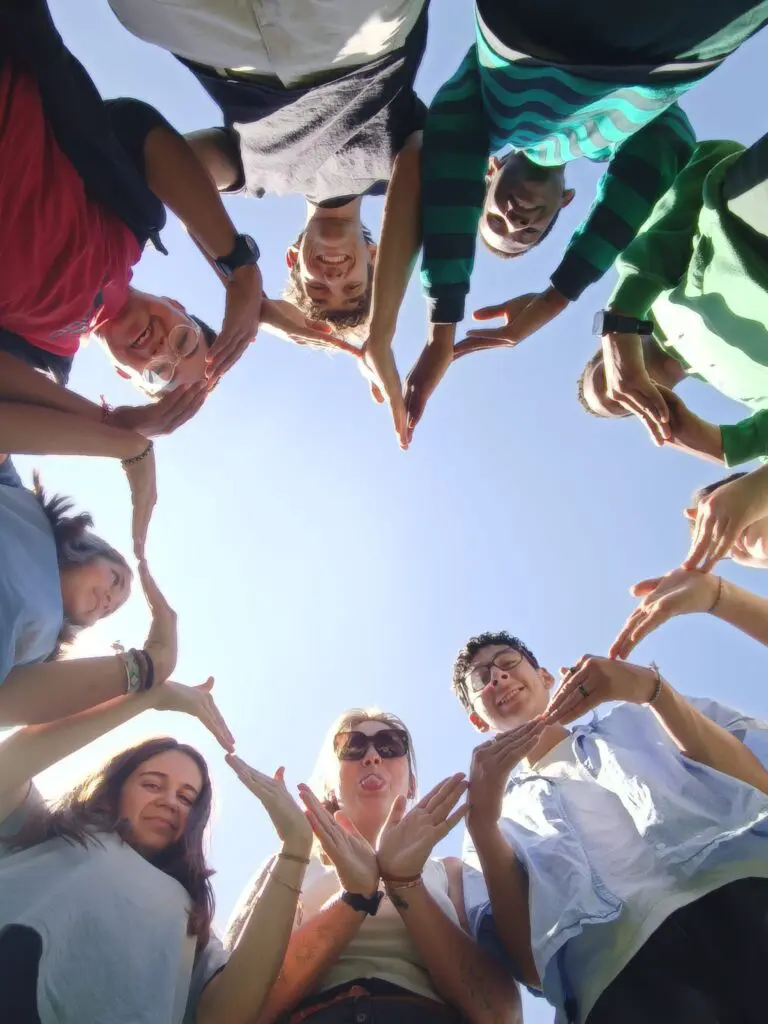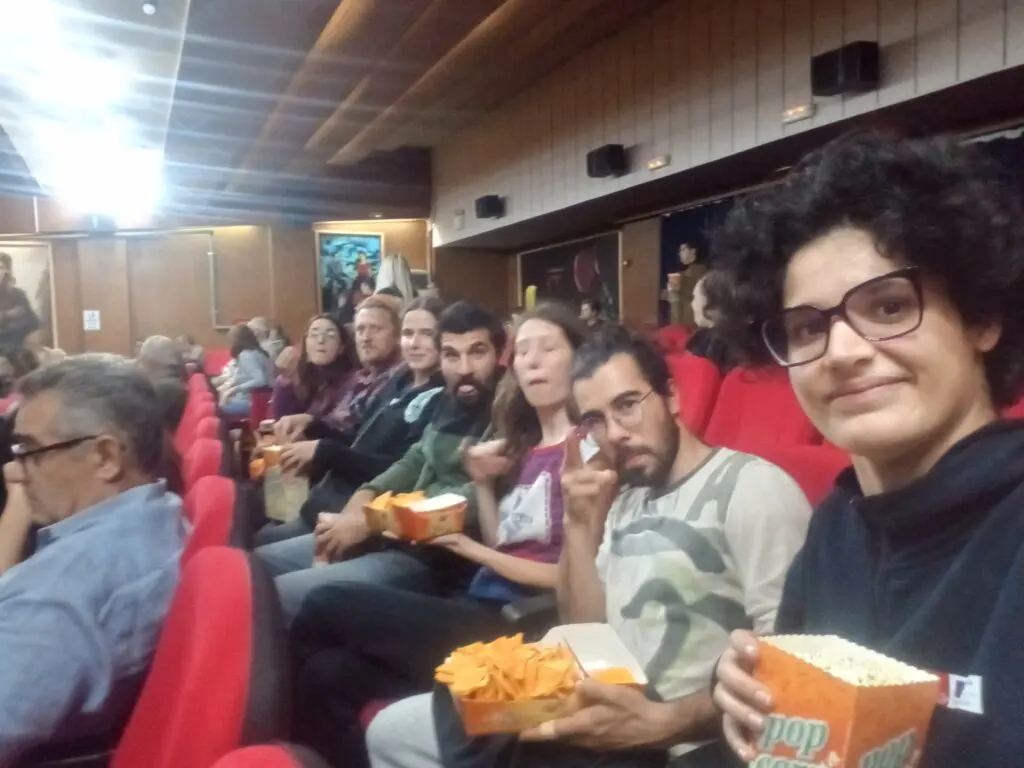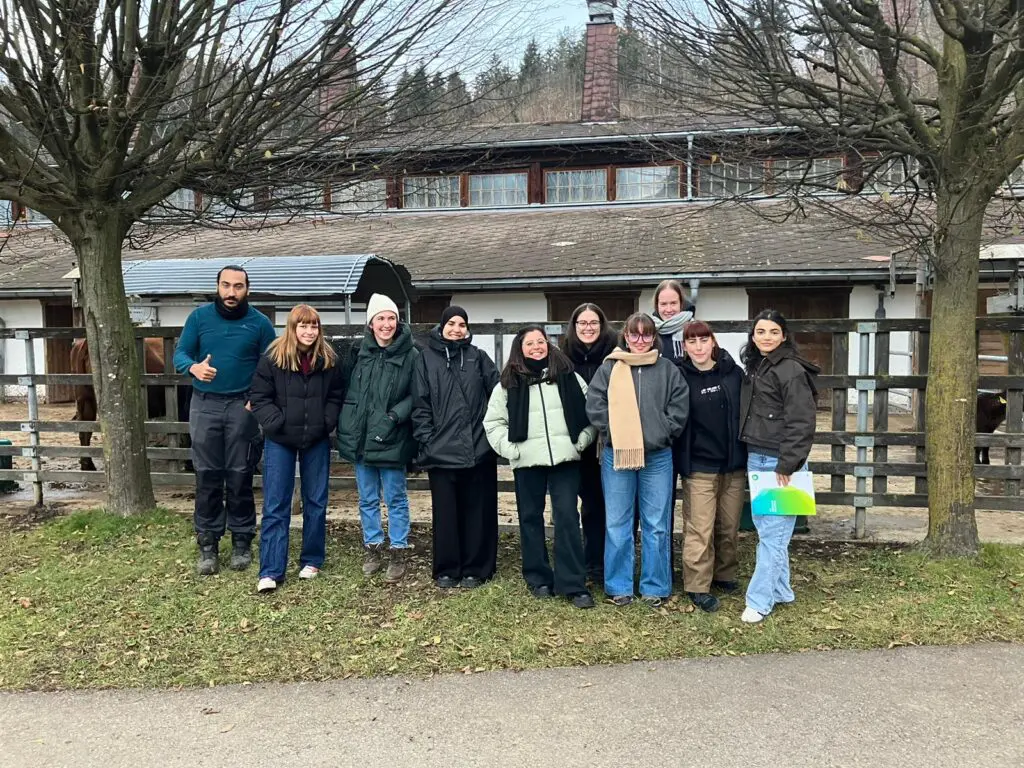WorldWide Fund for Greece
Description of organisation:
WWF Greece was founded in 1990. Since 1995, and because its influence in greek society has increased, the greek office has been m independent national office of the international network of WWF. Our organization maintains in full its right to make its own :lecisions regarding its organization and priorities. At the same time we share the network’s global targets and operation principles.
The actions of WWF Greece are quite multidimensional, depending on two cardinal goals. First and foremost, the protection 01 biodiversity by struggling daily to protect ecologically sensitive species and areas and to assist in the overall improvement of thE ~nvironmental management. The second goal has to do with minimizing the human footpring by promoting practical solutions. In this context the emphasis is given in addressing climate change and promoting a life-style that will lead in a more balanced relation between humans and nature.
WWF Greece strives to achieve these goals by taking action in the field and in the political arena. Since its establishment thE Jrganization has organized and completed various projects aimed to protect aquatic, coastal, marine and forest ecosystems of thE ::ountry. Field projects aim to actively protect and manage the natural environment through researching and monitoring populations and habitats, structuring management proposals and applying them in pilot projects where the organization i~ present permanently (Evros, Zakinthos, Giaros, island wetlands and Prespes). On the other side, WWF’s mission is achieved through scientifically founded interventions on issues of greek environmental policy and the realization of environmental education projects.
In the 23 years WWF Greece has been active in Greece the organization strives to protect greek nature by combining actions in local, national and european scale. Fundamental role in the success of these actions is the active involvement of as big as possiblE part of society: either everyday people, or entrepreneurs and politicians. Today WWF Greece employs 51 people, while 600 peoplE in total, both Greeks and foreigners, participate voluntarily in many of the organization’s actions.
An important action that gives a clear picture of WWF Greece work objective is the efforts to strengthen the character of the fores1 Jf Dadia as one of the most crucial habitats for the birds of prey of Europe and also to formulate a long term programme for thE protection, scientific monitoring and development of the region.
The involvement ofWWF Greece with Dadia’s forest started in 1979 when WWF International and IUCN (the International on for Conservation of Nature) funded a research on the ecological value of the forest and lobbied succesfully in favour of puting the 3.rea under protection. The area was finaly designated a protected area in 1981.
In 1992 WWF Greece placed in the area a permanent team that was responsible to implement activities regarding the scientific monitoring, as well as the protection and the management of the forest that was designated as National Park in 2006. Today in the WWF Greece office in Dadia work 4 permanent staff and during most of the time 4 to 7 EVS volunteers. The 4 members of thE ,taff is one forester, one environmentalist, one biologist and one philologist of Turkish language with experience in birdlife: environmental policy and awareness. Sections of protection, policy and environmental education of our central office in Athem mpport the team on a permanent basis.
During all these years the contribution of our team has been fundamental in making steps towards the restoration of thE ~cological balance of the area, the protection of raptor populations and the development of ecotouristic activities, thm ::ontributing in the sustainable development of the region.
Some of the most significant successes of the project has been the increase of the black vulture population, the inclusion 01 protection measures for the raptors in the forest’s management, the designation of the area as a National Park and thE :levelopment of cross-border collaborations. Equally significant has been the successful implementation of the most updated monitoring methods and the production of scientific reports and articles, as they contributed as well in communicating environmental management know-how to the rest of the country. Finally, we must mention also the important contribution 01 WWF Greece in setting up and running the ecotouristic centre in Dadia (during the first decade) and in promoting the region in Greece and Europe.
WWF Greece continues to be active in the forest of Dadia through the following activities:
1. Systematic monitoring of biotic parameters (vultures, birds of prey, rare fauna species or important species for the survival and conservation of raptors)
2. Dissemination of scientific knowledge and management proposals to involved authorities like Forest Services, Management Park authorities, regional and central authorities which consist our main target group
3. Promotion of active protection of raptors and their breeding and foraging biotopes within actions of guarding in the Dadia-Lefkimi-Soufli National Park (hereafter Dadia NP) and in focused areas in Thrace.
4. Monitoring of wind farms’ impact on raptors within policy and lobbying for the acceptance of a zoning map for the proper planning of wind farms proposed by our organization
5. Promotion of collaboration and synergies among the involved authorities within our participation in the boards of 2 National Parks, Dadia NP and Evros Delta NP
6. Awareness events for land users related to the raptors’ threats as the direct persecution and the poisoning. Out main target group consists by livestock breeders which on one side create suitable biotopes for raptors and provide food to them and on the other side is part of the problem when they illegally control predators by using poisoned baits.
Our programme is open to volunteers that have less opportunities, regarding their socioeconomic and cultural background. The staff of WWF Greece are always ready to invet time and enrgy in order to support any volunteer that is in need. Nonetheless, the type of actvities and facilities do not allow the participation of handicapped colunteers.
Motivation and EVS experience
For WWF Greece an environmental organization is a collective and organized effort of caring citizens that want to be «part of thE ;;01 ution».
The volunteers offer their time and their invaluable abilities, while also they strengthen the activities and efficiency of OUI permanent staff. The volunteers of WWF Greece are people from distinct social and professional backgrounds, that work toward~ 3. common goal: the protection and conservation of the greek natural heritage. In WWF Greece the volunteers leave their own ‘footprint» on the organization and are a constant beam of optimism for the rest to continue.
The volunteers are an integral part of WWF Greece project in Dadia. During all these years tens of volunteers have worked here, :>ffering their invaluable time and work that is essential for the actions of the organization. Since January 2003 Dadia’s project ha~ nosted EVS volunteers nonstop. During all these years more than 75 volunteers from 13 different countries have participated in the project Initially, being a part of the European Voluntary Service has been a valuable opportunity for us to bolster our previom ~xperience of working with volunteers from Greece, while also reaching people outside the country and promoting the idea oj I’olunteering in a European scale. Furthermore, the long term stay of the volunteers in the village of Dadia would allow thE formation oftighter relations between them, our project’s team and the local community.
Today, due to the very positive experiences we have gained, we can confidently state that these projections have come intc fruition. Thus WWF Greece project in Dadia is more than positive to continue hosting european volunteers.
Project Environment
WWF Greece project in Dadia is based in the village of Dadia, a village of 700 inhabitants located in the municipality of Soufli, in the prefecture of Evros. In proximity to Turkey and Bulgaria it attracts thousands of visitors every year. Tourism has nowadays a significant role in the local economy, together with agriculture, animal husbandry, wood harvesting and public services. In the village someone can find tavernas, cafes, mini-markets, guest houses and of course the visitors’ centre, and the offices of the Management Body of the Dadia National Park The community is relatively introvert and conservative. This means that the locals have their own distinct life style and mindset, so the volunteers need to be careful and considerate. Within 16 km there is the citY of Soufli with banks, health center for immediate hospitalization, pharmacies, post office and other services.
Volunteers have the opportunity to familiarize themselves with the raptor and other bird species identification, the use of telescope, binoculars, field protocols and maps, database and GIS, systematic census and report writing.They also have the opportunity to learn from organizing and planning daily work. From the collaboration within a workplace that combines field and office work and end management of human resources. Finally, volunteers have the opportunity to watch how to solve problems concerning the effective protection of the environment in the politico-economic context of Greece. Latest abilities can develop through systematic presentations are organized by our staff specifically for volunteers and through dynamic coexistence with the WWF team in the field and in the office
The main role of the volunteers is their participation in the research field with significant field work and office, organized and ~oordinated by the four strains of group WWF in order to achieve the main activities of our group as above. Although most of the lctions apply to long term basis with selected methods, our team give the opportunity to volunteers to contribute actively to the mprovement or evaluation.
Recording all vulture species at the feeding station of Dadia’s National Park.
Moniitoring the population trends of vulture species by recording the birds at the feeding Stations by using telescope. This activity takes place from specific view points and the bird observatory and involves the recording of the bird’s species, age and activity. This action takes place from the day food is placed at the feeding stations (once a week) and for two more days after until the food eaten by the vultures. The action is annual and is implemented 3 days per week.
Monitoring reproductive activities of black and griffon vulture inside the Dadia NP and adjacent areas, ir collaboration with the Management Body of Dadia’s NP.
Recording the reproductive activity of the two species from specific view points inside the National Park, by usin~ telescope, binoculars maps and data sheets. This action takes place from March until August and is implemented 5 to 8 days per month.
Monitoring the reproductive activities of the Egyptian vulture in Thrace.
Recording the reproductive activities of the species from specific view points in the region, both inside and outside the National Park by using telescope, binoculars maps and data sheets. This action takes place from April until September and is implemented 5 to 10 days per month
Guarding nest of egyptian vulture inside Dadia’s NP.Participating in guarding the egyptian vulture’s nests inside the National Park with the goal of preventing or minimizing human disturbance and nest poaching (eggs and/or juvenile birds). At the same time information regarding the reproductive acitivities inside the nest is recorded. The guarding takes place from view points using binoculars and telescopes. This action takes place from April UT’ . September and is implemented 5 times per week.
Guarding of hot areas is carried out by scientific staff with the use of dogs specifically educated in tracking poisoned animals or baits. Once the poisoned animal is tracked, our scientific colleagues call the responsible authorities to manage the incident. The recording of incidents is aiming to the estimation of the intensity of poisoning and its impact on raptors.The volunteers will support the responsible WWF staff for implementing this qction. This action takes place during specific months in spring and in summer and is implemented 30 to 40 days per year.
Monitoring avifauna in Evros Delta in collaboration with the Management Body of the National Park of Evros Delta.
The volunteers take part in the monitoring programme of the Management Body of the National Park of Evros Delta that is carried through since ten years ago. In this action the volunteers visit the Evros wetland once a week where they monitor the avifauna for 6 hours (9 a.m. to 15.00 p.m.) with the cars and drivers of the Management Body. Binoculars and telescopes are used, while the monitoring takes place form either the car or specific view points. The species recorded include: ducks, swans, raptors, flamingos, pelicans, herons and other wetland species. This action takes place from October until February and is implemented 1 or 2 days per week.
Recording two species of terrestrial tortoise (Testudo graeca and Testudo hermanni) that can be found inside Dadia’s NP by doing transect surveys, chosen in order for all the habitats of the region to be proportionally represented in the survey, and using binoculars specifically designed data sheets. This action takes place from April until September and is implemented 5 to 10 per month (every transect will be surveyed twice, once in spring and once in summer).
Recording two species of terrestrial tortoise (Testudo graeca and Testudo hermanni) that can be found inside Dadia’s NP by doing transect surveys, chosen in order for all the habitats of the region to be proportionally represented in the survey, and using specifically designed data sheets. This action takes place from April until September and is implemented 5 to 10 per month (every transect will be surveyed twice, once in spring and once in summer).
WWF Greece participates every year in festivals and exhibitions held in the Prefecture of Evros. There it has the opportunity to inform people regarding its actions, give away information material and organize events for children and adults. Every year the volunteers have the opportunity to participate in the «Bird Day» and the «World Wetlands Day» that are organized with the Hellenic Ornithological Society/Birdlife International and the Visitors Centres of Dadia’s and Delta Evrou National Parks. Additionally the volunteers participate in all events organized by local authorities where WWF Greece has the opportunity to inform inhabitants regarding the need to protect raptors.
Inserting all the data produced from the field work, arranging other office documents etc.
No specific skill is required from candidate volunteers apart from having a sincere interest in nature and a truethful desire to learn.
In general, the volunteers will need to be equipped with a strong motivation and a good disposition. A lot of the activities in which the volunteers are involved here hace to do with working outside in the field, being exposed to harsh weather condition etc. Any volunteer needs to be ready to work in such conditions and to show resilience and patience.
It is equally important to be flexible and open-minded, as volunteers stay in a small village of the greek countryside where societal rules can be quite different from what they know, while they will nee,d also to cooperate wiAA±h many different people, oftenly working in teams.
F ally, a basic knowledge of english is essential, as it is important both for communicating with the rest of the
volunteers, but also with WWF’s staff and the local community.
The volunteers are selected collectively by all the staff members. Each application goes to a generic «list of people interested» that is studied each time there is a need for new volunteers. Significant emphasis is given to the motivation letter, through which we can evaluate the interest of each applicant for the activities of the project, an important factor in order to understand if the applicant can truly assist the project.
After all these years of active participation in the network of EVS organizations we are open to collaborate with any sending organization.
The volunteers live in a fully furnished and equipped house in the centre of the village, that usually, depending on the total number of volunteers at the time, sleeps two per room. The volunteers are trained in all the activities that they participate in. Significan care is taken for the proper health and safety measures needed when coming in contact with birds. Additionally, WWF Greece takes care of the livelihood of the volunteers by setting up a private insurance scheme for the entire period of their stay in Dadia.
The staff member responsible for the volunteers has weekly meeting with them, in order to discuss any proposal, complaint, problem etc. that can arise. That staff member is always available to the volunteers. At the same time the volunteers are encouraged to set up their own meetings, a method that has proved to be a very good platform for the resolution of conflicts.
Selection process
For the selection of the volunteers we will need:
– Europass CV with picture (made in the last month)
– Motivational letter, writing that your sending organisation will be “Building Bridges”. We ask all candidates to send a specific letter of motivation – why they want to volunteer with us rather than just a general EVS one. We will not proceed with any candidature that do not write this into the motivation letter.
Remember to write in the motivation letter that your sending institution is “Asociación Building Bridges”.
All documents written in english you can send to: asociacionbb@gmail.com with subject “EVS Grecia”




Elisa
11 junio, 2015 at 11:36 pmHola:
Estoy interesada en este voluntariado, quería saber si ya está aprobado, en que fechas se va a realizar y cuando finaliza el plazo para enviar el CV y la carta.
Muchas gracias!
admin
14 junio, 2015 at 11:26 amHola, hemos cerrado ya el plazo de inscripción a este voluntariado, tenemos más ofertas en la sección «Plazas SVE». suerte!
Add a comment